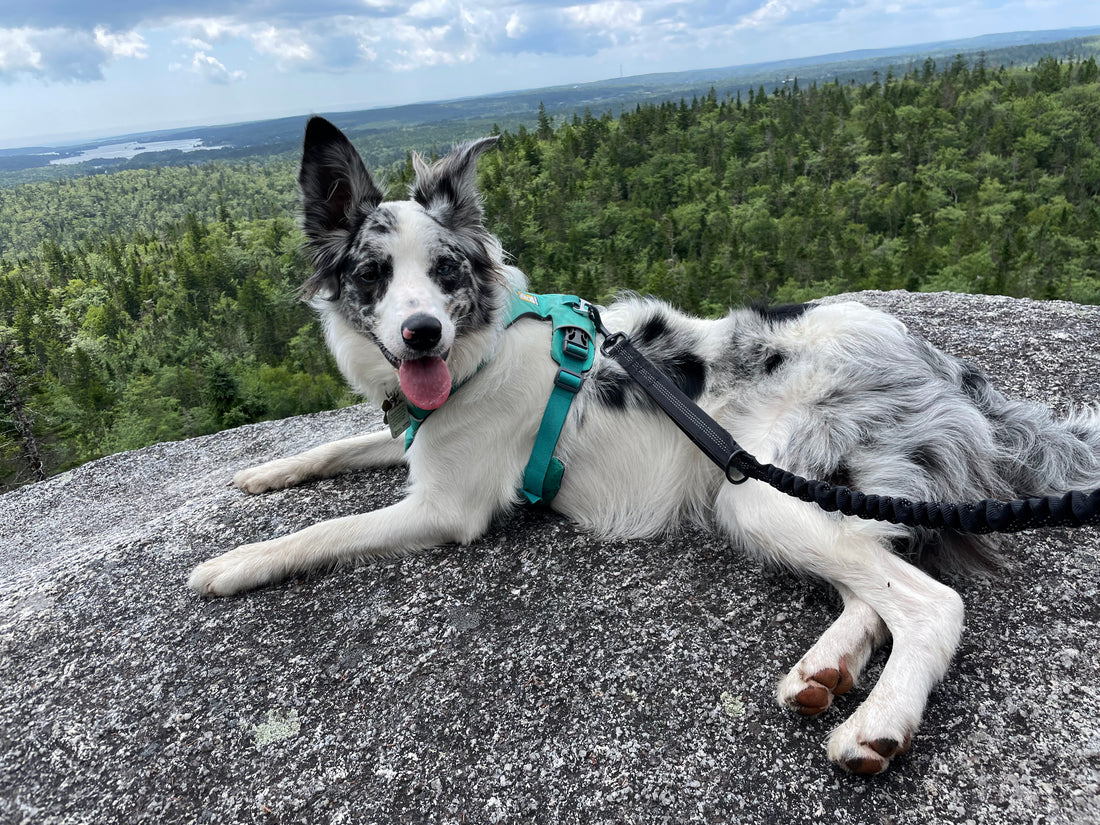Recall training is one of the most crucial skills for any dog owner, regardless of breed. As a proud dog owner myself, I've learned firsthand the importance of teaching reliable recall to ensure both safety and freedom for your furry friend.
I'll share my journey with recall training alongside Mya, my two-year-old blue merle Border Collie. Mya joined my life at the age of 8 weeks, and from that moment on, she's been my faithful companion and enthusiastic partner in all our shared adventures.

- Building Independence with a Long Line
I knew I wanted to give Mya some freedom to explore while also ensuring her safety. That's why I introduced her to a long line during her early training days. The long line allowed her to roam and explore while still being connected to me, giving her the independence she craved while providing me with peace of mind knowing that I could assist her if needed.


- Learning from the Best: Walking with Dogs with Excellent Recall
Before embarking on off-leash adventures with Mya, I first walked her alongside dogs with exceptional recall skills. This allowed her to observe and learn from her behaviour, helping her understand the importance of returning when called.

- Encouraging Regular Check-Ins
To reinforce the habit of regular check-ins during off-leash adventures, I implemented a simple yet effective technique. Whenever we ventured off the beaten path, I would subtly move away, prompting Mya to notice and come find me. This helped her develop the natural tendency to check in with me regularly, strengthening our bond and ensuring she remained attentive to my presence.
- Positive Reinforcement: Every Come Command Deserves a Treat
Consistency is key when it comes to recall training, and positive reinforcement plays a crucial role in building a strong recall response. Every time Mya responded to my recall command and came back to me, she was rewarded with a high value treat. This created a positive association with returning to me, reinforcing the idea that coming when called is always a good thing.

- Remember, Training Never Ends: Consistency is Key
It's essential to remember that recall training is an ongoing process that never truly ends. Consistency is key to maintaining a reliable recall response. Even as your dog grows older, continue to reinforce the training and practice regularly to keep their recall skills sharp.
- Avoiding "Fun Is Over" Associations
One common challenge during recall training is avoiding negative associations, especially when it's time to put the leash back on. To prevent Mya from associating recall with the end of fun, I would occasionally clip her leash on and then immediately unclip it, allowing her to continue playing freely. This helped her understand that returning to me didn't always mean the end of her off-leash adventures.
- Conclusion: Trust, Safety, and Freedom
Recall training is not just about obedience; it's about building trust, ensuring safety, and providing your dog with the freedom to explore and enjoy life to the fullest. By incorporating techniques like long lines, learning from dogs with excellent recall, regular check-ins, positive reinforcement, and avoiding negative associations, you can cultivate a strong recall response and strengthen the bond with your furry companion.
With patience, consistency, and a whole lot of love, you and your dog can conquer any adventure together!

